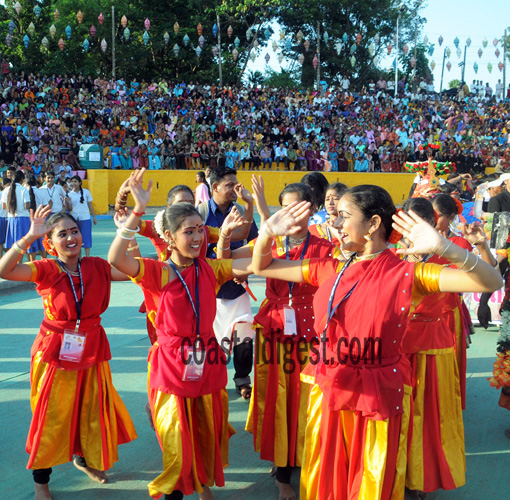
Mangalore, January 16. Curtains came down on the five-day long 17th National Youth Festival on Monday with the Chief Minister D V Sadananda Gowda laying emphasis on the urgent need to infuse young blood and vigor at the all levels of administration especially at the grassroots levels of the Department of Youth Services and Sports.
The valedictory ceremony got off to a colourful start with cultural troupes from various states of India once again unleashing the mesmerizing hues of Indian cultural through a vibrant procession in front of the tens of thousands of spectators at Mangala Stadium in this coastal city.
Addressing the national assembly of youth, Mr Gowda pointed out that the Mangala Stadium, which was jam-packed with young crowd, was an evidence to the fact that the India's folk culture can still connected with Gen Y and enthuse them.
“We have all heard and read about India being a land of diverse cultures and talents. Over the last five days, the people of Mangalore, Karnataka, India and SAARC countries have witnessed and experienced the concept of 'Celebrating Diversity in Unity' coming to life with young talented delegates coming together, demonstrating their rich cultural heritage and weaving a magical tapestry of India”, the CM said. “We have felt the true warmth of this big family we shared during the past five days”, he added.
Reaffirming the state government's commitment to provide greater platform for the youth, the CM said more of such platforms need to be provided to youth of India to discover their roots, strengths and talents, become confident, develop self-worth to lead society; lead India.
“My government is committed to this by enabling the latent potential of youth power in its entirety to work towards nation building activities”, he assured.
He also said that the youth I see in front of him as the ambassadors of cultural heritage and unity, would be tomorrow's leaders who would take India forward.
Pointing to the surge in the population of youth in Asia and India, he lamented that the work towards enabling the youth of this nation has hitherto not been given the importance it deserves.
The Chief Minister pledged to take a lead from this youth festival and to revamp the schemes and introduce new programmes through the Department of Youth Services and Sports in the larger interest of youth.
“The Youth Rally will be modeled more on the lines of the youth festival. We will broad-base it by introducing new competitions and events, inspiring fresh talent”, he said.
He said that the training programs in life skills development will be strengthened and the scope will be expanded to imbibe the teachings of Swami Vivekananda.
He also said that the State Government has decided to celebrate Youth Week in a more meaningful way from now on. “Steps will be taken to connect the ideals of Swami Vivekananda with the values our youth and our people require for everyday life”, he added.
In his welcome address, Principal Secretary of Youth Services and Sports I R Perumal informed that as many as 6,318 participants from across the 28 States and seven Union Territories along with SAARC delegates took part in the event.
Chairman of Legislative Council D H Shankar Murthy presided over the programme.
Minister for Medical Education and Technical Education and Youth Service and Sports, in Government of Jammu and Kashmir Rajendra Singh Chib, Dakshina Kannada District In-charge Minister Krishna J Palemar, Mangalore MP Nalin Kumar Kateel, Deputy Speaker of Karnataka Legislative Assembly N Yogish Bhat, Mulky-Moodbidri MLA Abhayachandra Jain Coastal Development Authority Chairman B Nagaraj Shetty, former international athletes Uday K Prabhu, Sri M P Ganesh and Arjun Devaiah were present among others on the occasion.
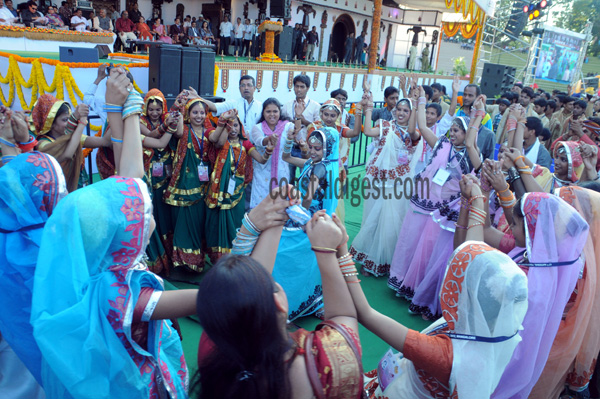

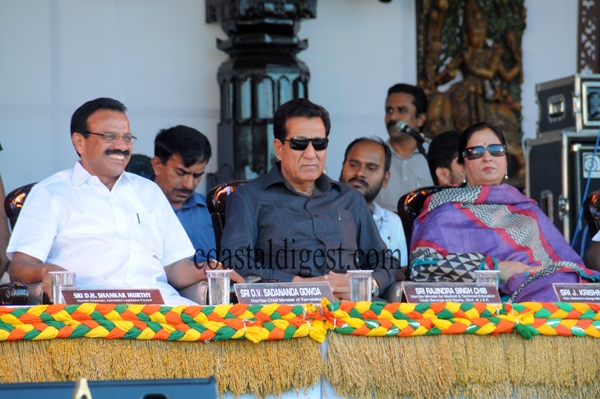
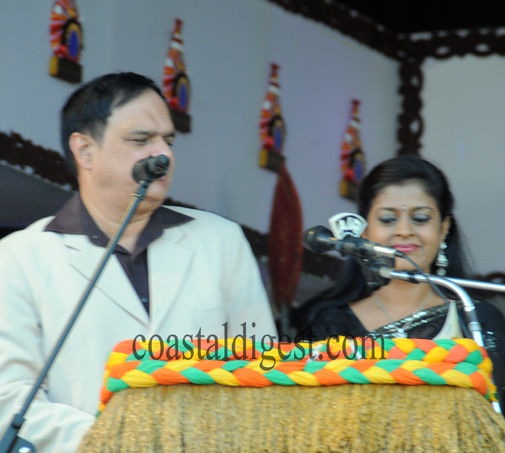
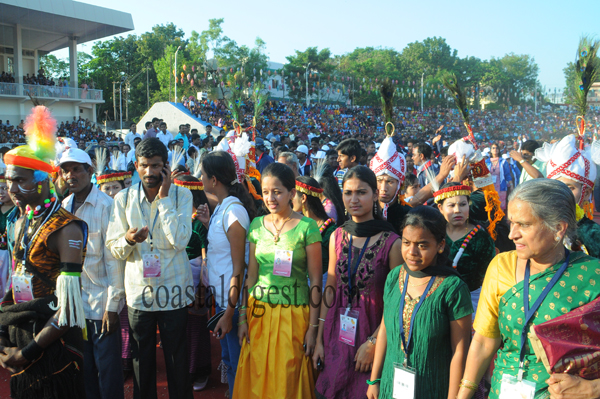
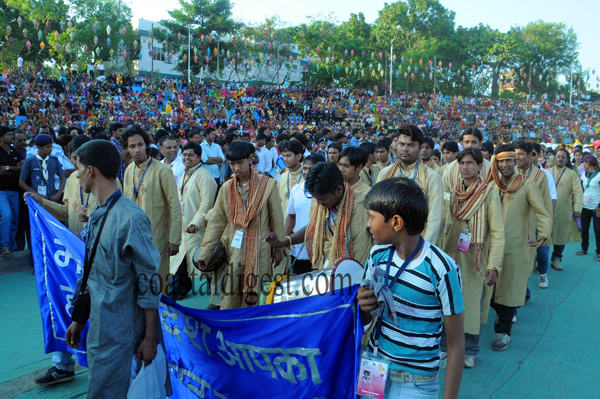
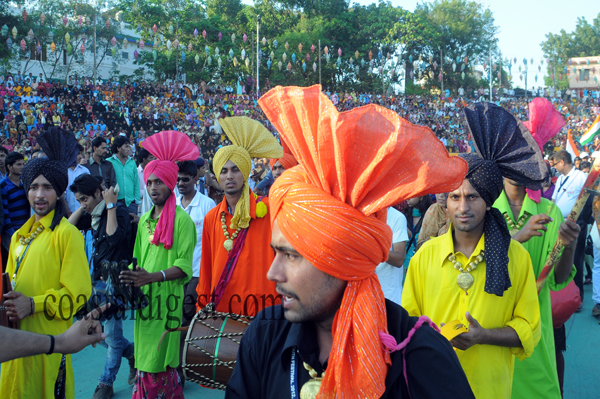
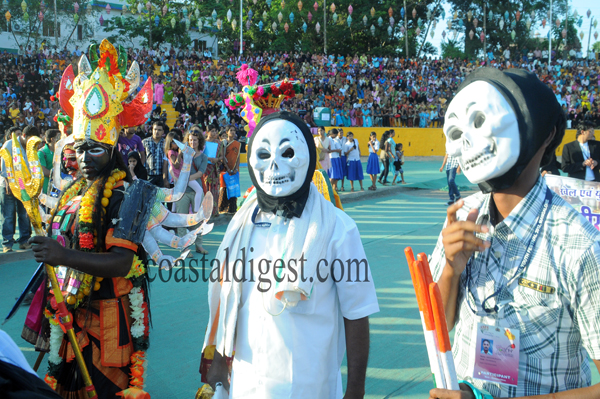
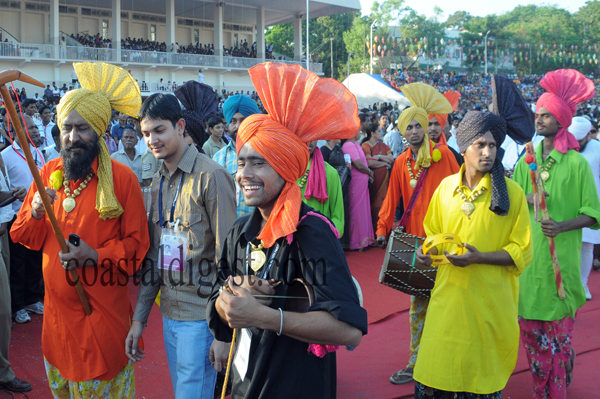
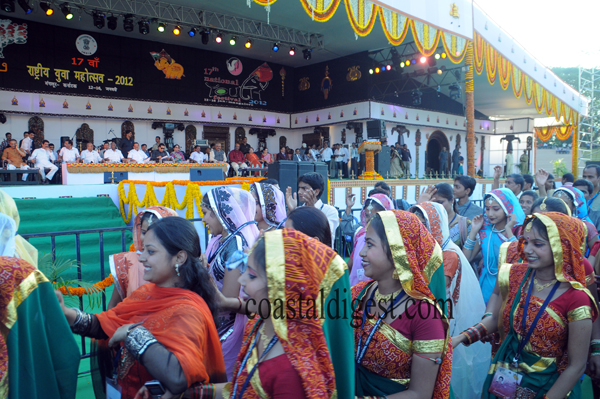
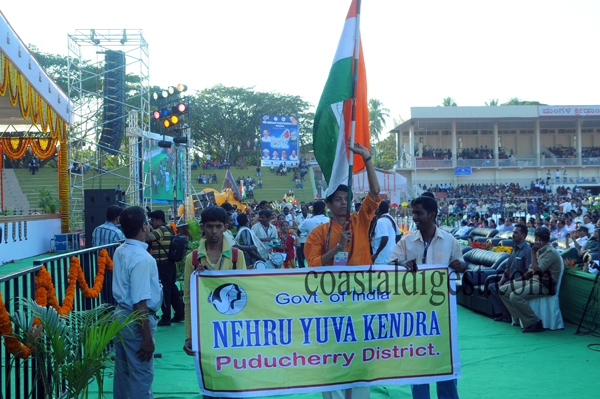
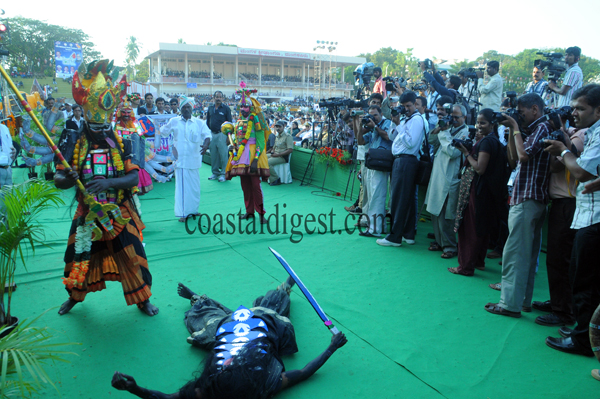
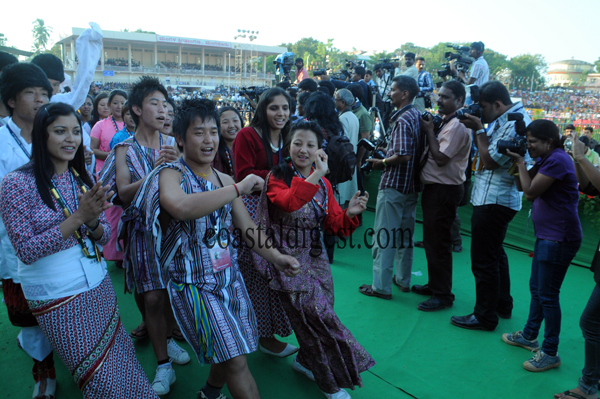
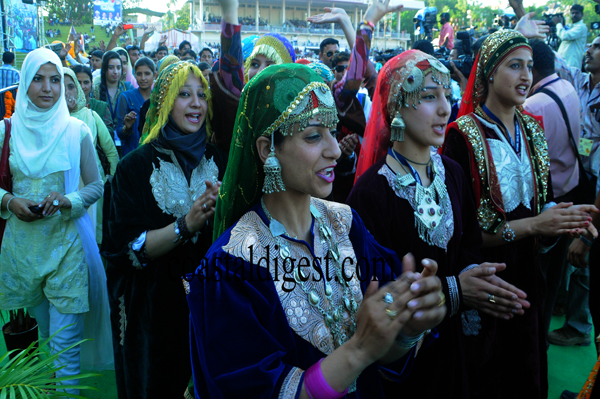
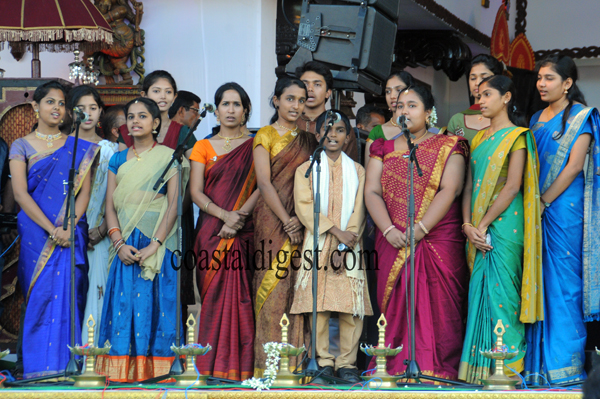
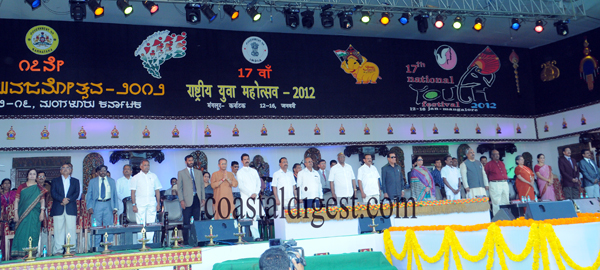
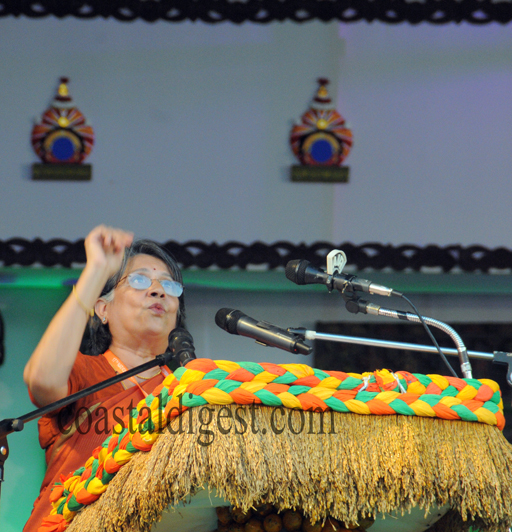
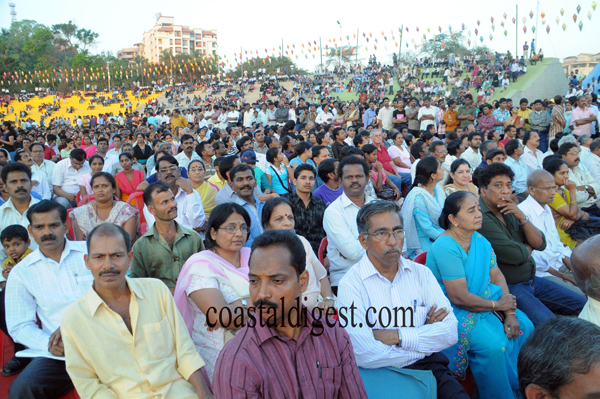

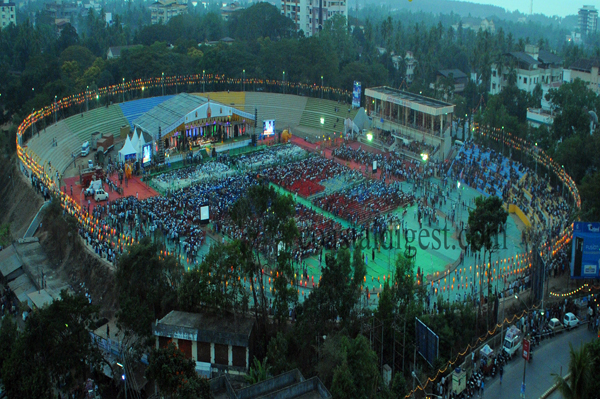
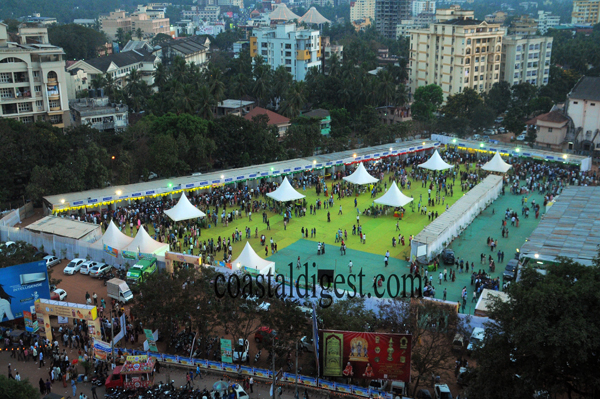
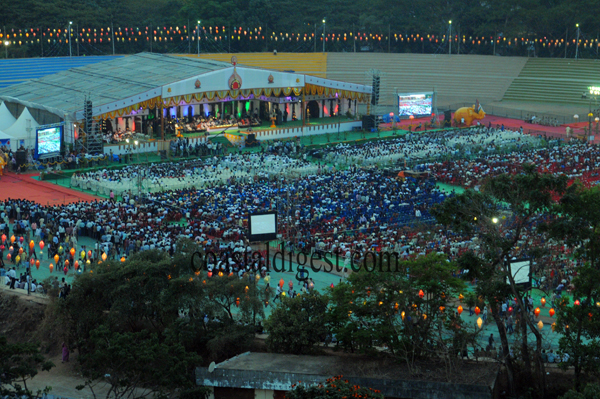
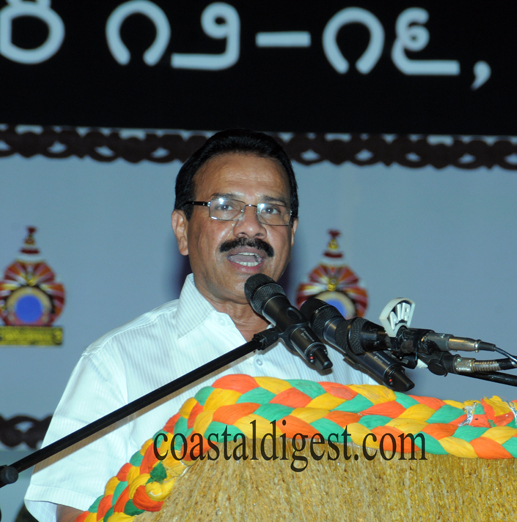
Glimpses of 17th National Youth Festival (Album 1)
Glimpses of 17th National Youth Festival (Album 2)
Glimpses of 17th National Youth Festival (Album 3)
Glimpses of 17th National Youth Festival (Album 4)
Glimpses of 17th National Youth Festival (Album 5)






Comments
Add new comment